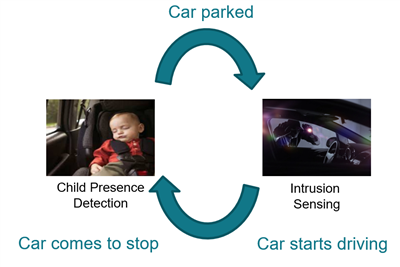Understanding the Key Differences: Home Equity Loan vs Car Loan
#### Home Equity Loan vs Car LoanWhen it comes to borrowing money, understanding the differences between various types of loans is crucial for making inform……
#### Home Equity Loan vs Car Loan
When it comes to borrowing money, understanding the differences between various types of loans is crucial for making informed financial decisions. Two common types of loans that individuals often consider are the home equity loan and the car loan. Each of these loans serves different purposes and comes with its own set of advantages and disadvantages. In this article, we will delve into the specifics of both loan types, helping you to determine which one may be the best fit for your financial needs.
#### What is a Home Equity Loan?
A home equity loan allows homeowners to borrow against the equity they have built up in their property. Equity is the difference between the current market value of your home and the outstanding balance on your mortgage. Home equity loans are typically structured as second mortgages, meaning that they are secured by your home. This type of loan usually comes with a fixed interest rate and offers a lump sum payment that you repay over a set period, often ranging from 5 to 30 years.
One of the main advantages of a home equity loan is the potential for lower interest rates compared to unsecured loans, such as personal loans or credit cards. Additionally, the interest on a home equity loan may be tax-deductible, making it an attractive option for those looking to finance home improvements, debt consolidation, or other major expenses.
#### What is a Car Loan?

On the other hand, a car loan is a type of secured loan specifically used to purchase a vehicle. When you take out a car loan, the vehicle itself serves as collateral for the loan. This means that if you fail to make your payments, the lender has the right to repossess the car. Car loans typically have shorter repayment terms, usually ranging from 3 to 7 years, and they can come with either fixed or variable interest rates.
The primary benefit of a car loan is that it allows individuals to purchase a vehicle without having to pay the full price upfront. Additionally, since the loan is secured by the vehicle, lenders often offer lower interest rates compared to unsecured loans. However, unlike home equity loans, the interest on a car loan is generally not tax-deductible.
#### Comparing Home Equity Loans and Car Loans
When comparing home equity loans and car loans, several factors come into play.

1. **Purpose of the Loan**: A home equity loan is typically used for larger expenses, such as home renovations or debt consolidation, while a car loan is specifically for purchasing a vehicle.
2. **Interest Rates**: Generally, home equity loans offer lower interest rates than car loans due to being secured by real estate, which carries less risk for lenders.
3. **Loan Terms**: Home equity loans often have longer repayment terms compared to car loans, which can help in managing monthly payments.
4. **Tax Implications**: The interest on a home equity loan may be tax-deductible, whereas the interest on a car loan is not.

5. **Risk of Repossession**: With a car loan, the vehicle can be repossessed if payments are missed, while with a home equity loan, the risk is losing your home.
#### Conclusion
Ultimately, the choice between a home equity loan and a car loan depends on your specific financial situation and needs. If you are a homeowner looking to leverage your property’s value for significant expenses, a home equity loan might be the better option. Conversely, if you need financing to purchase a car, a car loan would be more appropriate. Always consider consulting with a financial advisor to explore your options and make the best decision for your financial future.